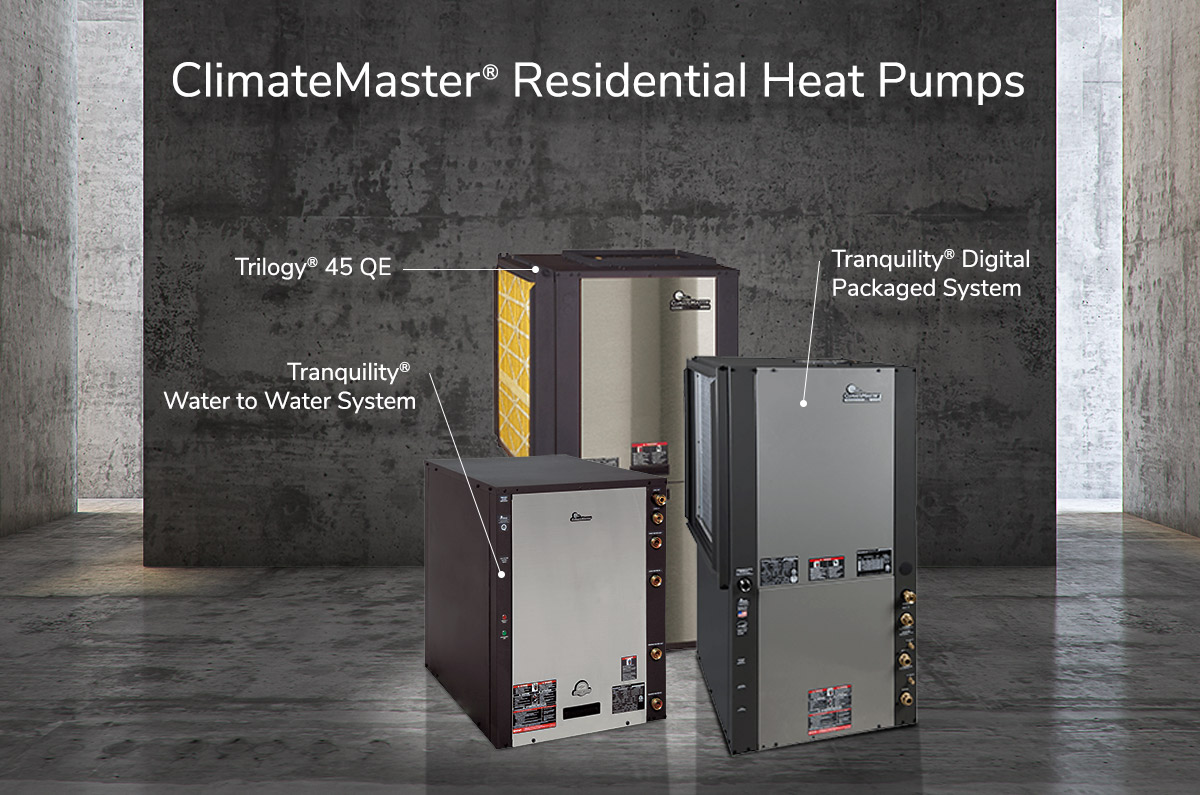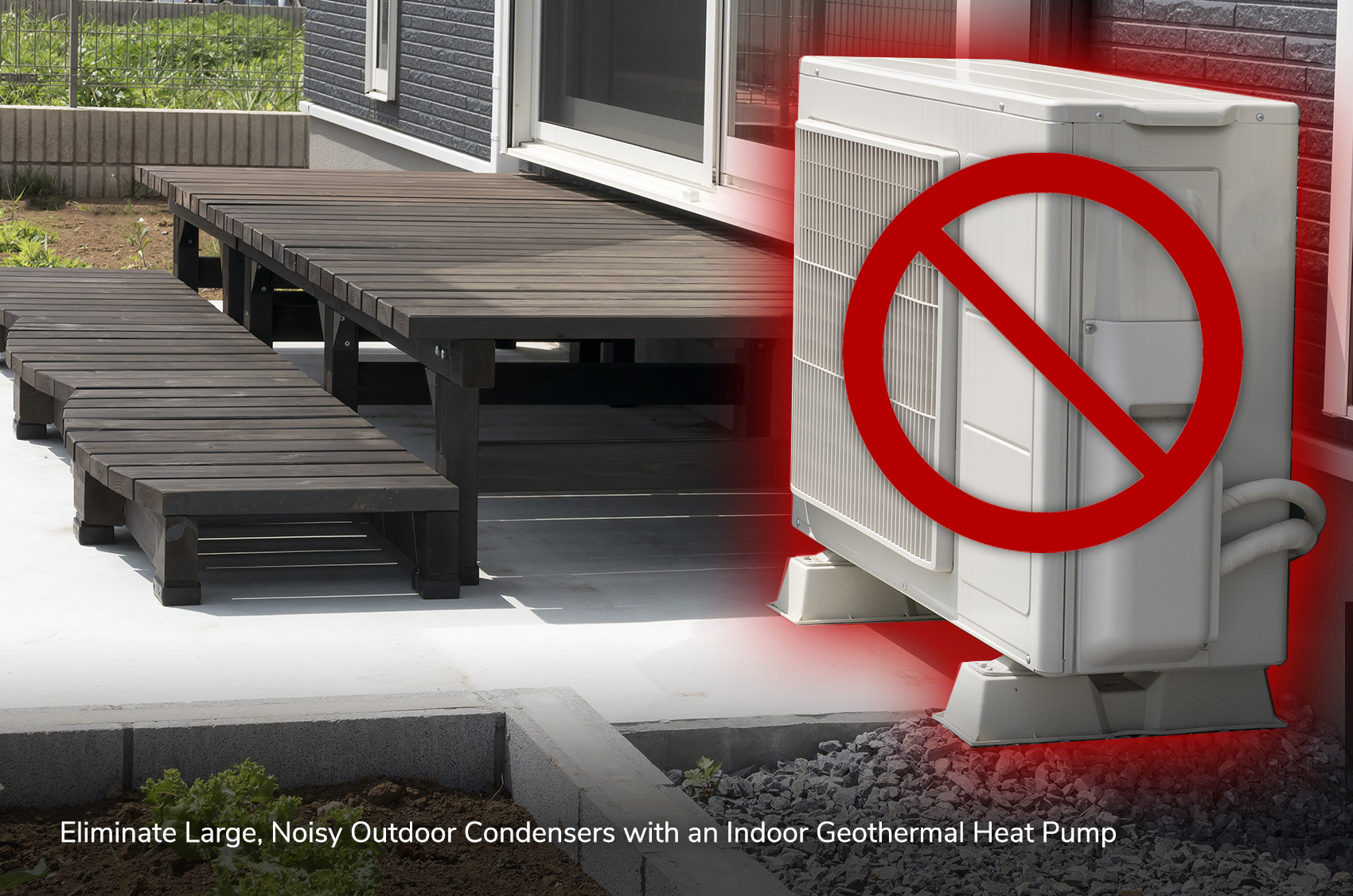ClimateMaster News
The most educational residential HVAC blog in the country, providing, HVAC systems articles and videos, as well as information on geothermal systems.
How Much Will a Geothermal Heating and Cooling System Cost for My Home in 2021?

Published By: Joe Parsons
If you’ve been considering geothermal heating and cooling for your home, you may be asking yourself questions not only about upfront costs but what the overall expense may entail. It’s true that geothermal heating and cooling units have a larger upfront price tag, but the main thing people want to know is: will the system be worth it in the long run?
According to energy.gov, reducing heating costs by as much as 50% and cooling costs by as much as 35% compared with a conventional furnace and AC is the top reason for choosing geothermal. Still, there are a few things to consider when deciding if the timing is right for you.
Evaluating your Personal Situation
Many factors will contribute to the geothermal heat pump cost that a homeowner can expect to spend during installation. When you maximize the efficiency of energy used in your home, you can significantly reduce cost and utility bills while improving overall comfort. But it is critical to evaluate the energy load and decide on ways to reduce it if you want to have maximum energy efficiency. Apart from your home’s size, other factors determine the correct geothermal heat pump for your space.
What Affects the Cost of Geothermal Heating Installation?
Because geothermal installation costs can vary widely, it’s essential to understand what will determine your geothermal heat pump cost. Specific elements, as well as the brand selection, will influence the cost of your geothermal investment.
System capacity
The capacity of your unit needed to facilitate the size of your home will determine the most significant portion of your budget. The larger the size, the higher the cost will be. You can have a range of about 2.0 tons/24000 BTU to 10.0 tons/120000 BTU for a residential unit. Generally, a home will need a unit between the ranges of 2.5 tons to 5.0 tons.

Types of systems
You also have to consider the types of loops for your geothermal heat pump. The space you have available will determine whether a horizontal or vertical system is the ideal choice for you. Usually, horizontal loop systems are more cost-effective than a vertical loop. Still, there needs to be adequate space for horizontal loop systems to be installed.
Features and efficiency
The features of your unit and system efficiency will also be a factor in determining overall costs. System efficiencies will vary, but a geothermal unit’s efficiency is generally between 15 EER (Energy Efficiency Ratio - Higher number is better) and above 45 EER for cooling. The ratings of COP (Coefficient of Performance - Higher number is better) stand at around 3.0 cooling to above 5.0 for heating. Popular features that homeowners look for include domestic hot water production, Wi-Fi control, and remote monitoring features.
Depending on these factors, plus the performance of the brand you choose and qualified installers’ experience, your cost will range from low to high on the spectrum.
What’s the real-life price tag of a geothermal system?
The geothermal heating and cooling prices in this article are calculated before any local utility incentives or the 26% federal tax credits - which were recently extended by congress through the end of 2022.
On average, a homeowner can expect total expenses to reach between $18,000 to $30,000 on geothermal heating and cooling cost. This cost would cover a complete geothermal installation. The price can range from $30,000 to $45,000 with high-end ground-source heat pump systems for large homes. It is crucial to remember that the size of your home, the location, types of soil, available land, local climate usability and condition of existing ductwork, and your choice of heat pump will influence the total geothermal heating cost required to invest.
Because there is a 12% annual growth in the geothermal heating and cooling market, due primarily to the increase in demand for highly efficient HVAC systems that leverage sustainable energy, consumers’ costs have been positively affected.
Compared to geothermal costs of a decade ago, the pricing structure is becoming more competitive, thanks to the fact that there are more manufacturers offering ground source heat pumps, and more experienced and efficient installers.
Who Should Consider a Geothermal System?
Though geothermal is an ideal way to heat and cool a home, there are a few factors to consider when deciding if the time is right for a ground source heat pump system in your home.
Reducing Emissions: If reducing your carbon imprint is important to you, there’s no better solution.
According to the Environmental Protection Agency, geothermal ground source heat pump systems are one of the most energy-efficient, environmentally clean, and cost-effective space conditioning systems available.
Settling in
The longer you intend to stay in your current home, the more cost-effective a geothermal system is in the long run. If you’re planning to move, chances are you won’t see the benefit of your investment. But if you’re in your dream home to stay, there’s little on the market that can give you the payoff a geothermal unit can.
Ideal landscape and retrofitting
If you have the ideal location for setup, your upfront cost will be lower. Having room in your yard for a horizontal loop system, is the best option for lowering costs. Plus, if a ground source system can be fitted with your current ductwork or hydronic system with little or no modification, your costs will be lower than if major changes must be made.

The weather and payoff
The more extreme heat or cold in your climate, the faster you will recoup your investment through lower energy costs. Living in climate extremes apparently can have its perks.
Even though the initial costs of installing a geothermal heat pump can be intimidating, when given the long-term benefits, government and potential local tax incentives for homeowners to install, and the eventual savings payoff, there’s never been a better time to consider switching to geothermal heating and cooling.
ClimateMaster, Inc
7300 SW 44th St
Oklahoma City, OK 73179
800.299.9747
© ClimateMaster, Inc. All rights reserved 2024


